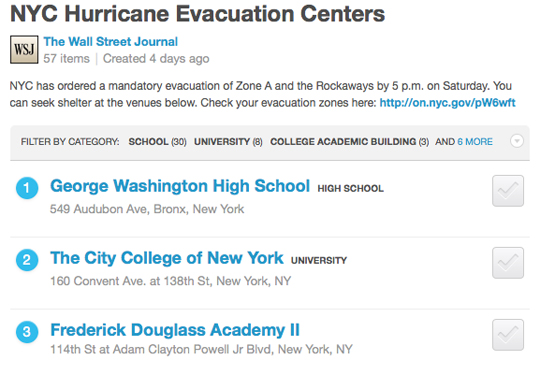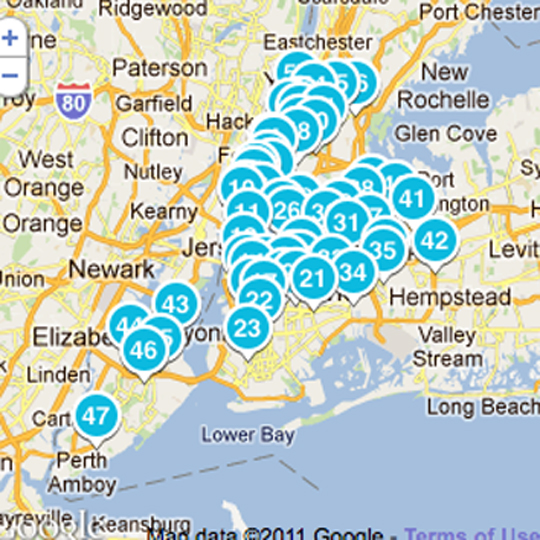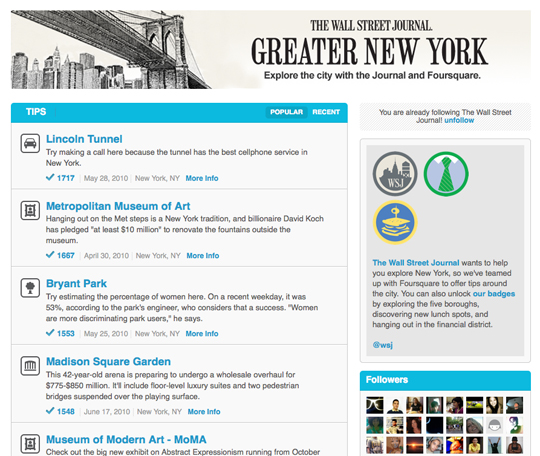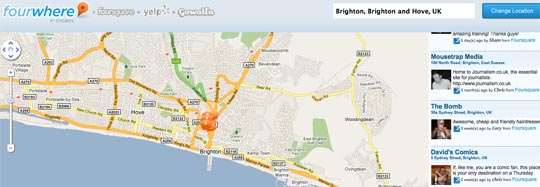As Hurricane Irene lashed the east coast of the US at the weekend, the Wall Street Journal used Foursquare’s recently-launched tip lists feature to provide details of the locations of New York City evacuation centres.
The tip lists were launched on 15 August and were used by the WSJ for a breaking news story less than a fortnight later.
Users of Foursquare, the mobile phone app and social network which has 10 million members worldwide, can check-in and share their location with their friends and contacts by using the WSJ’s NYC Hurricane Evacuation Centers Foursquare list.
A total of 130 people follow the evacuation centres on Foursquare, a low number when compared to other networks (the New York Times @NYTLive Twitter account accrued 22,000 followers in three days when reporting on the hurricane), but the WSJ’s innovative use of lists is another example how news publishers can interact with readers.
Eric Friedman, director of business development at Foursquare, told Journalism.co.uk how the WSJ list works:
This is a page that the Wall Street Journal can administer and actually people can follow the list, which is a great way for them to interact with their current fan base on Foursquare and also as resource for anyone else for a quick way to develop something that was extemely helful in a potentially very damaging storm.
Friedman went on to explain another way in which the WSJ has used the platform.
It’s a way for them to build a following on a new network, which is Foursquare, and for them to get really timely and relevant information attached to a place.
In the past they’ve use [their Foursquare page] to attach breaking news to a place, when something is going on in Times Square, for example. They’ve also used it in a way which is very interesting, for past historial events to let someone know “hey, I’m at the Brooklyn Bridge”, here’s what happened at this time on this date many, many years ago. So it’s a way of bringing the old Journal information to the forefront as well as a way bringing new information to someone in a breaking way.
Mashable has more information on user-generated tip lists allowing users to create crowdsourced lists.



